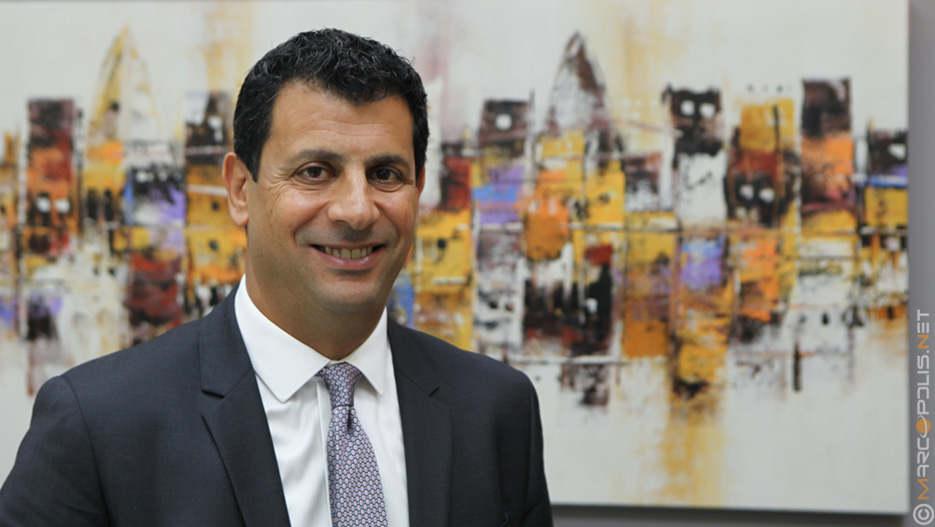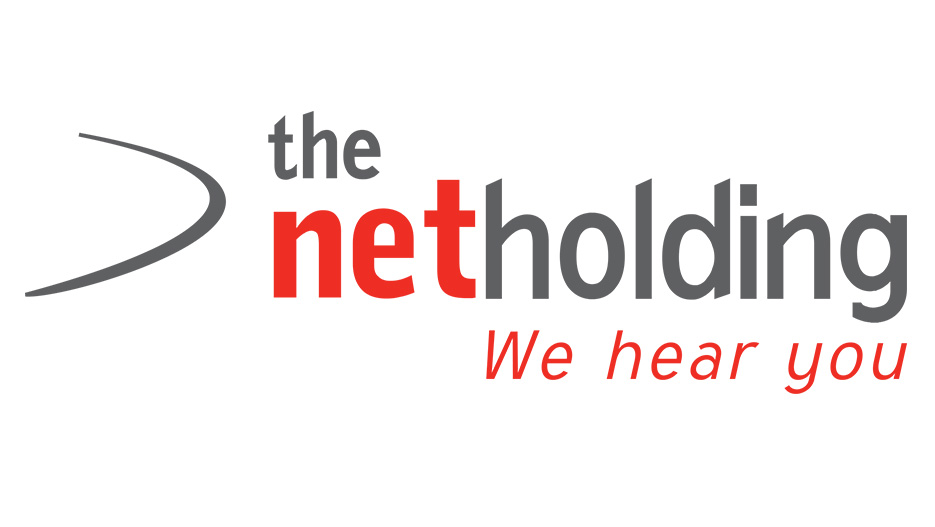Lebanon to Reestablish Itself as a Regional Hub for Express Logistics Services in the Middle East
“As a group Net Holding’s objective and strategy is not only to try to sustain and maintain what we have in terms of business growth across different types of services but also to be prepared for peace in the region. Once it is established, the reconstruction projects in Syria will be actioned and the Iraqi market will thrive; as a matter of fact, all types of projects such as power plants and oil and gas will kick off again so we need to be ready for this economic rebirth in the region.”
Interview with Mourad Aoun, CEO of Net Holding

How is the Syrian conflict impacting the logistics environment in the region?
Because of the situation in Syria and the ongoing war, new logistics operations’ challenges have risen between Lebanon and the region. Due to the border closure, Lebanon lost its Syria connection to Turkey and the Arab world and hence any prospect of ground transportation which was replaced by ocean freight. The humanitarian aid for Syria goes through the Beirut Port or the Tripoli Port which is starting to play a major role in the logistics operations of Lebanon. Tripoli’s rise is due mainly to the development of the port itself which is subsequently witnessing an increase in activity; we have a ground operation company that is now operating the container terminal in Tripoli and we have more ferry boats that are transporting trucks from Beirut to Turkey by ferry through Mersin.
On the other hand, more shipping lines are coming to Tripoli to take advantage of the operational benefits and they are servicing the Beirut port through feeders.
Moreover, and on a bigger scale, Tripoli is set to play a major role in the reconstruction of Syria. Since they are geographically very close, cargo can move easily from Tripoli to Syria and this is what the Lebanese government is betting on: the international community using the Tripoli port as a point of entry to rebuild Syria or support Syria in the future.
Today the Tripoli port is connecting Lebanon to Turkey and even to Europe through the feeders on the ferries that are coming through Mersin and even though the regional challenges remain the same, we are looking into creating more opportunities through feeder by ferry into Jordan to connect to the Arab countries or through containers via shipping.

How is Net Holding responding to the situation and what are your expectations? Where is this heading?
As a group we are in a very challenging position because we are operating in all the warring countries. We are based in Lebanon despite the economical and political challenges of the country. We have offices in Syria even though we are not running any actual business there; for the time being we are supporting the UN and the humanitarian aids that are coming to Syria. Our Iraq operations are situated in Erbil, Basra and Baghdad which are the areas that are fighting and things are just not going the way they should be. We are also present in Jordan where the situation is highly affected by Syria.
Our business in Turkey has also been facing several economic challenges due to the unstable situation of the country itself and that of its neighbours.
So in a nutshell, the countries that we operate in are either having security problems or facing economic challenges and that requires the company to act in a different way and be on the lookout for viable alternatives.
Despite this grey and bleak picture, we remain positive that this situation won’t last much longer. We are constantly thinking of innovative solutions for our clients, for instance we have temporarily shifted our attention from oil and gas, which has recently slumped, towards retail business and food and beverages because that is what people need right now in order to live. We need to take what is happening around us into consideration and reposition ourselves accordingly.
We want to turn Lebanon into a hub for the future region and that will take place when Syria, Jordan and Iraq re-enter the market. We can then use Lebanon as a gateway to feed these countries by land transport. Lebanon can then become another mini-hub with the Levant region serviced through Beirut.
The interesting observation here is that during these tough times we can also prepare for the better times. As a group our objective and strategy is not only to try to sustain and maintain what we have in terms of business growth across different types of services but also to be prepared for peace in the region. Once it is established, the reconstruction projects in Syria will be actioned and the Iraqi market will thrive; as a matter of fact, all types of projects such as power plants and oil and gas will kick off again so we need to be ready for this economic rebirth in the region. Till that time our strategy is clear: we need to sustain, maintain and try to keep the business running as usual which is not an easy thing to do. We are doing our best.
Let’s talk about the Air Express Association and the growth of ecommerce in the region and its impact nowadays.
As you know I am the Air Express Association’s president in Lebanon. Our focus is to try to help Lebanon gain a prominent position in the future logistics or express industry and there are two major roles it can play in this regard.
We want to turn Lebanon into a hub for the future region and that will take place when Syria, Jordan and Iraq re-enter the market. We can then use Lebanon as a gateway to feed these countries by land transport. Lebanon can then become another mini-hub with the Levant region serviced through Beirut. Cargo aircraft will come from Europe and land in Lebanon. All cargo will be uploaded onto trucks and dispatched to these four countries. In today’s express industry economic express services, i.e. time definite door to door service but at a very economic rate, are key. This is where the previously mentioned air freight and truck combination comes into play.
Obviously this is not something that will happen in the very near future but this is something we can for and we are ready for. This is why we are trying to work with customs on changing the actual laws and trying to make the processes easier to allow us to operate very fast and grow this business in the proper manner. This is one aspect that we are focusing on, as Air Express Association: having Lebanon regain its regional hub position, like it used to be in the 70’s, but from an express perspective.
The other aspect that is growing tremendously in the express industry is e-commerce. Worldwide e-commerce is becoming very aggressive and fast paced. Global trade is moving more and more towards e-commerce and the online business growth is staggering. The actual laws and procedures that regulate e-commerce in Lebanon are a bit challenging when it comes to clearance and declaration forms. If you are an individual consumer and you want to buy something online, you will be faced with the cost of clearance or the cost of custom duties with VAT which would ultimately deter you from buying the product. We are trying to convince the customs to make these more flexible in order to make it a bit easier and affordable to trade online.
The other challenge that we are facing as the Air Express Association is the lack of residential addresses which is making home delivery problematic.
We are striving to come up with innovative solutions to be able to do these deliveries at the lowest possible cost and hopefully the government will contribute to having clearer addresses to deliver to.
One thing we do acknowledge and understand is that the future of commerce is online.
E-commerce is twofold, on the incoming side you have the purchases by individual consumers, who should be able to get their package at a reasonable cost including the clearance and delivery, and on the other side there are the Lebanese traders or industrialist who want to sell their products online.
We have a lot of food products such as pistachios, bread or sweets that are being sold online and their e-commerce potential is huge. I think that by working on a proper e-commerce infrastructure we can really help Lebanese traders, manufacturers, and industries sell online and have the world as their market.
There are several opportunities that we are looking into, as a group, in order to create innovative solutions for the Lebanese traders, industrialists, start-ups (whether they are clothing or bag designers or small artisanal crafts), and the new generation of young entrepreneurs with progressive ideas. For instance, we own a platform in the States, in partnership with Skynet Worldwide Express, where they can sell their products online to consumers worldwide.
I think e-commerce will play a major role in the Lebanese economy and hopefully there will be some helpful legislative and infrastructural changes that would enable an easier import and export process.
In what ways has Brexit affected you in terms of export and how is it going to affect the logistics industry in the Middle East in general?
I am a member of the global board of Skynet Worldwide Express. Though we know for sure Brexit will impact the business throughout Europe, we cannot currently predict how it is going to impact our business; we will probably incur losses in certain areas and gain some wins in other areas.
For example, the UK was a gateway to Europe for Lebanon and the Middle East, hence from a logistics perspective everything used to be freighted to London and dispatched throughout Europe from there and this might become a challenge with Brexit and its repercussions. Will the goods be able to easily flow into Europe without more red tape? This is something that will be answered in the coming years. I know for a fact that Brexit will affect the logistics operations in Europe because a lot of e-commerce traders use the UK as their base.
If we want to look at it from a positive perspective Brexit might bring new opportunities to the Middle East as it might push the UK to create different partnerships within the region in search of more markets. Obviously this doesn’t mean that the UK will disregard Europe but it will have to exert more individual initiatives to tie up with different markets in order to compensate for the losses Brexit will bring about. There is no sure answer yet as it’s too early to predict the Brexit repercussions and take a pertinent course of action but we are definitely keeping an eye on the progress of things because this will impact the logistics work of Skynet Worldwide Express globally.
FAIR USE POLICY
This material (including media content) may not be published, broadcasted, rewritten, or redistributed. However, linking directly to the page (including the source, i.e. Marcopolis.net) is permitted and encouraged.